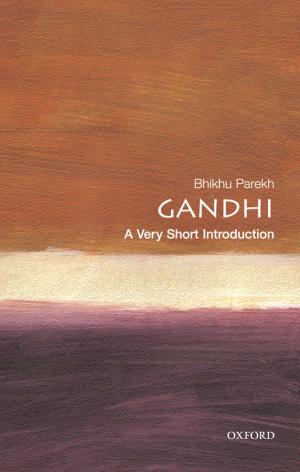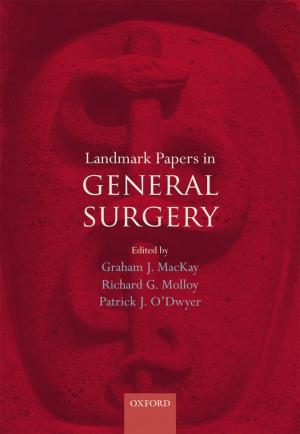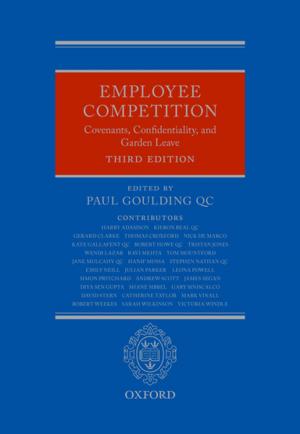John Ashbery and Anglo-American Exchange
The Minor Eras
Fiction & Literature, Literary Theory & Criticism, Poetry History & Criticism| Author: | Oli Hazzard | ISBN: | 9780192555090 |
| Publisher: | OUP Oxford | Publication: | June 14, 2018 |
| Imprint: | OUP Oxford | Language: | English |
| Author: | Oli Hazzard |
| ISBN: | 9780192555090 |
| Publisher: | OUP Oxford |
| Publication: | June 14, 2018 |
| Imprint: | OUP Oxford |
| Language: | English |
In 1966, John Ashbery wrote: 'The English language is constantly trying to stave off invasion by the American language; it lives in a state of alert which is reflected to some degree in English poetry.' This book shows how the work of a major post-war American poet has been centrally concerned with questions of national identity and intercultural poetic exchange, by reading crucial episodes in Ashbery's oeuvre in the context of an 'other tradition' of modern English poets he himself has defined. This line runs from the editor of Ashbery's recent Collected Poems, Mark Ford, through Lee Harwood in the late 1960s, F. T. Prince in the 1950s, to 'chronologically the first and therefore most important influence' on his own work, W. H. Auden. Through detailed close readings of the poetry of Ashbery and these English poets, original interviews, and extensive archival research, a new account of Ashbery's aesthetic, and a significant re-mapping of post-war English poetry, is presented. The biographical slant of the book is highly significant, as it reads these writers' poetry and correspondence together for the first time, suggesting how major poetic innovations arose from specific social contexts, from the particulars of relations between poets, and also from a broader climate of Anglo-American exchange as registered by each poet. The book's presentation of the process of poetic influence is attentive to actual exchanges between contemporaries as evidenced in correspondence, as opposed to speculative relationships with dominant figures, and as such represents a departure from many other studies of Ashbery's work. Key themes include 'Englishness' as a national imaginary, the concept of the 'minor', reciprocal influence, and the poetry of coteries. The result is that both Ashbery himself, and the landscape of post-war English poetry, are presented in significantly new lights.
In 1966, John Ashbery wrote: 'The English language is constantly trying to stave off invasion by the American language; it lives in a state of alert which is reflected to some degree in English poetry.' This book shows how the work of a major post-war American poet has been centrally concerned with questions of national identity and intercultural poetic exchange, by reading crucial episodes in Ashbery's oeuvre in the context of an 'other tradition' of modern English poets he himself has defined. This line runs from the editor of Ashbery's recent Collected Poems, Mark Ford, through Lee Harwood in the late 1960s, F. T. Prince in the 1950s, to 'chronologically the first and therefore most important influence' on his own work, W. H. Auden. Through detailed close readings of the poetry of Ashbery and these English poets, original interviews, and extensive archival research, a new account of Ashbery's aesthetic, and a significant re-mapping of post-war English poetry, is presented. The biographical slant of the book is highly significant, as it reads these writers' poetry and correspondence together for the first time, suggesting how major poetic innovations arose from specific social contexts, from the particulars of relations between poets, and also from a broader climate of Anglo-American exchange as registered by each poet. The book's presentation of the process of poetic influence is attentive to actual exchanges between contemporaries as evidenced in correspondence, as opposed to speculative relationships with dominant figures, and as such represents a departure from many other studies of Ashbery's work. Key themes include 'Englishness' as a national imaginary, the concept of the 'minor', reciprocal influence, and the poetry of coteries. The result is that both Ashbery himself, and the landscape of post-war English poetry, are presented in significantly new lights.















